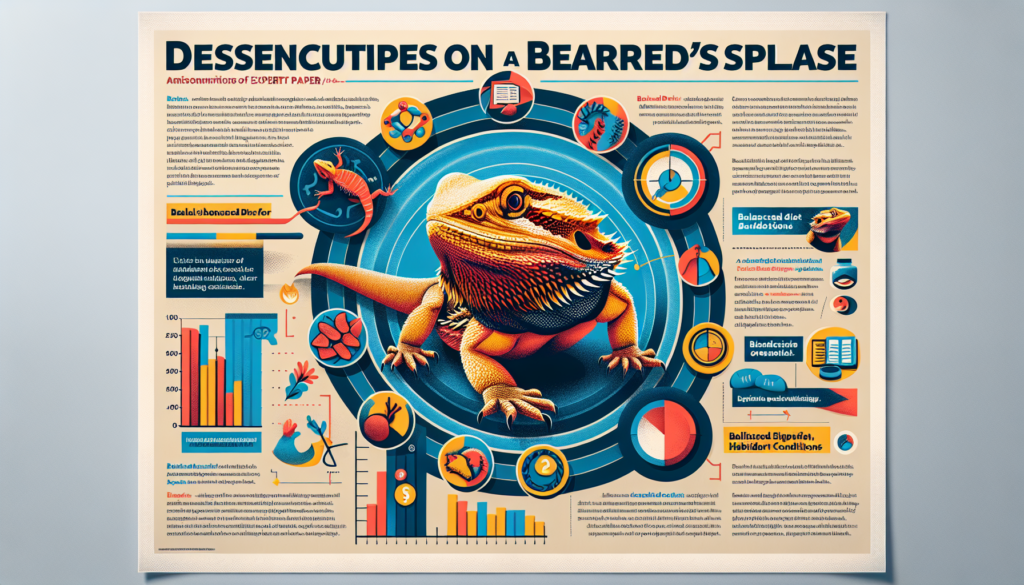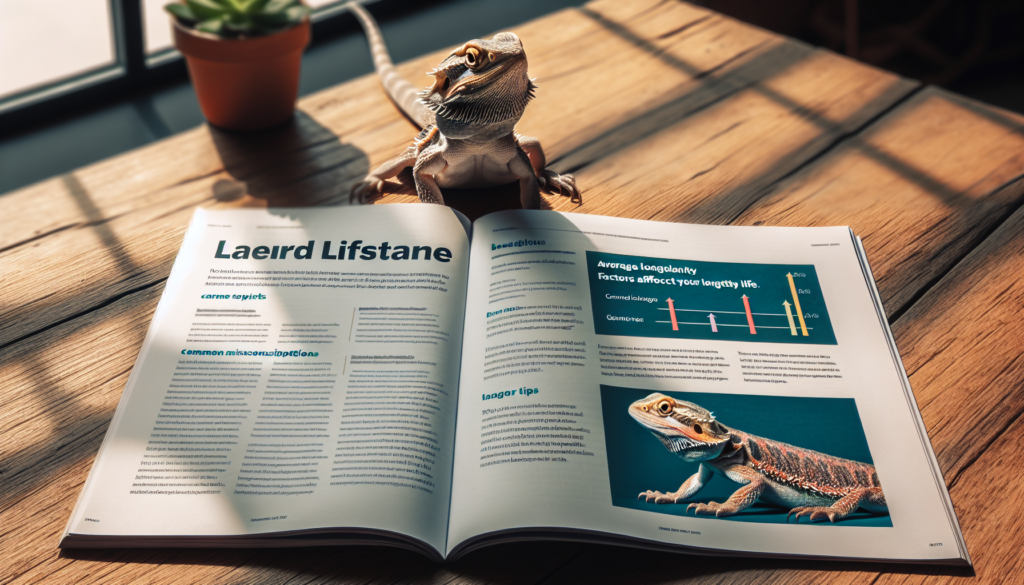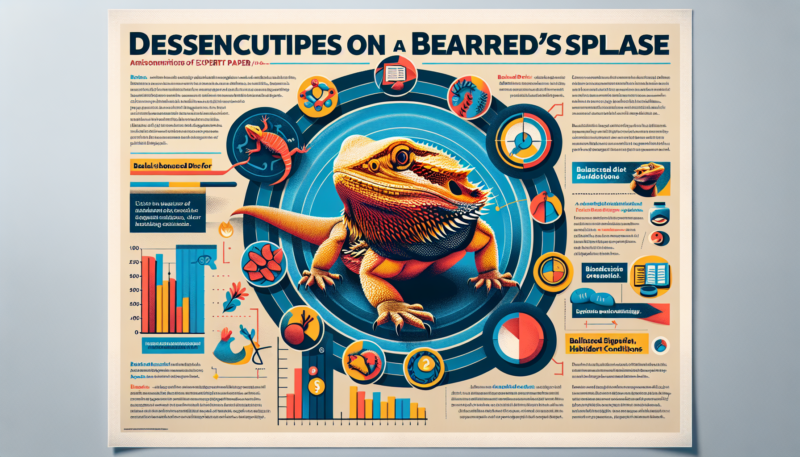In this fascinating article titled “How Long Do Bearded Dragons Last?”, we will explore the lifespan of these unique reptiles. Bearded dragons are captivating creatures that have become popular pets for many reptile enthusiasts. With their distinctive appearance and calm demeanor, they make excellent companions. However, it is crucial for potential owners to understand the length of time they can expect their bearded dragons to live. Join us as we delve into this topic and uncover the fascinating realities of these beautiful creatures’ lifespan.

Life expectancy of bearded dragons
Bearded dragons are popular reptile pets known for their unique appearance and friendly nature. If you’re considering adding one to your family, it’s important to understand their lifespan and the factors that can influence it. The average lifespan of a bearded dragon is between 10 to 15 years, but with proper care, they can live even longer. In this article, we will explore the various factors that can affect the lifespan of bearded dragons and provide tips on how to ensure that your scaly companion lives a happy and healthy life.
Factors affecting the lifespan of bearded dragons
Several factors can impact the lifespan of bearded dragons, including genetics, diet and nutrition, housing and habitat, temperature and lighting, as well as healthcare and veterinary care. By paying attention to these crucial aspects of their care, you can significantly increase the chances of your bearded dragon living a long and fulfilling life.
Genetics
Just like with any living creature, genetics can play a significant role in determining the lifespan of a bearded dragon. Some genetic factors may make certain individuals more prone to health issues, while others may be more resilient. When purchasing a bearded dragon, it is crucial to source it from reputable breeders who prioritize the health and well-being of their reptiles. A breeder with a good reputation will provide you with a bearded dragon that has a better chance of living a long and healthy life.
Diet and nutrition
Proper nutrition is essential for the overall health and longevity of a bearded dragon. A balanced diet that consists of a variety of foods is key to ensuring that all nutritional needs are met. Bearded dragons are omnivores, meaning they require a combination of protein, vegetables, and fruits in their diet.
Feeding frequency and portion sizes should be carefully monitored to prevent under or overfeeding. Juvenile bearded dragons require more frequent feedings compared to adults, while portion sizes should be adjusted based on the size and age of the dragon. It is important to source high-quality protein from insects such as crickets, mealworms, and dubia roaches. Vegetables and fruits should also be included to provide important vitamins and fiber.
Supplements, such as calcium and vitamin D3, are essential for proper bone development and overall health. These should be added to the diet according to the recommendations of a veterinarian specializing in reptiles.
Housing and habitat
Creating a suitable enclosure is crucial for the well-being and longevity of a bearded dragon. The enclosure should mimic their natural habitat to ensure they feel safe and comfortable. Firstly, the size of the enclosure is essential. A larger enclosure allows for more activity and exploration, promoting physical and mental health. The minimum recommended size for an adult bearded dragon is 75 gallons.
The substrate or bedding used in the enclosure should be safe and easy to clean. Options such as reptile carpet, ceramic tiles, or paper towels are ideal choices. Avoid using loose substrates like sand or wood chips, as these can be ingested and cause impaction.
Temperature gradients are important for thermoregulation, allowing bearded dragons to move between warm and cool areas within their enclosure. A basking spot should be provided with a temperature around 100 to 105 degrees Fahrenheit (37 to 40 degrees Celsius) and should be maintained using an appropriate heat source.
Moisture and humidity levels should also be considered. Bearded dragons require a moderate level of humidity, which can be achieved through regular misting or by placing a shallow water dish in the enclosure.
Temperature and lighting
Proper temperature and lighting are crucial for the health, digestion, and overall well-being of bearded dragons. They are ectothermic, meaning they rely on external sources of heat to regulate their body temperature. A basking spot should be provided within their enclosure to allow them to warm up their bodies.
UVB lighting is essential for the synthesis of vitamin D3, which allows bearded dragons to absorb calcium from their diet. Without proper UVB lighting, dragons can suffer from metabolic bone disease, leading to deformities and a shorter lifespan. UVB bulbs should be replaced every 6 to 12 months to ensure they are providing adequate levels of UVB radiation.
Additionally, maintaining a regular photoperiod and sleep cycle is important. Bearded dragons should have a consistent day and night cycle to establish a healthy routine.
Healthcare and veterinary care
Regular check-ups with a veterinarian who specializes in reptiles are crucial to monitor the health of your bearded dragon. They can perform routine examinations, provide guidance on diet and care, and identify any potential health issues before they become serious.
Parasite prevention is another aspect of healthcare that should not be overlooked. Regular fecal exams can help identify and treat any internal parasites that may be affecting your dragon’s health.
Being familiar with the signs of illness or disease in bearded dragons is essential. Common signs of illness may include lethargy, loss of appetite, weight loss, respiratory issues, skin abnormalities, or changes in behavior. If you notice any of these signs, it is important to seek veterinary care immediately.
Some common health issues in bearded dragons include metabolic bone disease, respiratory infections, impaction, and parasites. Many of these conditions can be prevented or managed with proper care, nutrition, and regular veterinary visits.
In the case of emergencies or severe health issues, it is important to have access to an experienced reptile veterinarian who can provide immediate care and treatment.
Bearded dragon lifespan by species
Different species of bearded dragons may have varying lifespans. Here are some notable species and their typical lifespans:
Inland bearded dragons
Inland bearded dragons (Pogona vitticeps) are one of the most common species kept as pets. They typically have a lifespan of 10 to 12 years, but with proper care, they can live up to 15 years.
Rankin’s dragons
Rankin’s dragons (Pogona henrylawsoni), also known as dwarf bearded dragons, have a similar lifespan to their inland cousins. They can live anywhere from 10 to 15 years, depending on their care and genetics.
Central bearded dragons
Central bearded dragons (Pogona barbata) are native to the central parts of Australia. They have a slightly longer lifespan compared to inland bearded dragons, ranging from 12 to 14 years.
Western bearded dragons
Western bearded dragons (Pogona minor minor) are found in the western regions of Australia. They have a similar lifespan to central bearded dragons, living on average between 12 to 14 years.
Pogona vitticeps
Pogona vitticeps, also known as the common or central bearded dragon, is one of the most popular pet species. They typically live between 10 to 15 years, but with exceptional care, they can even reach 20 years of age.
Average lifespan of bearded dragons
Taking into consideration the various factors discussed earlier, the average lifespan of a well-cared-for bearded dragon falls within the range of 10 to 15 years. However, it is essential to remember that each individual dragon is unique, and some may have shorter or longer lives depending on their genetic predisposition and overall care.

Tips for prolonging the lifespan of bearded dragons
While the lifespan of each bearded dragon is ultimately determined by genetics and factors beyond our control, there are several things you can do to help ensure that your scaly friend lives a long and healthy life.
Proper diet and nutrition
Providing a balanced diet that includes a variety of protein and vegetable sources, along with appropriate supplements, is essential. Avoid overfeeding and make sure to adjust the feeding frequency and portion sizes as your bearded dragon grows.
Habitat and environmental conditions
Creating a suitable enclosure that mimics their natural habitat, maintaining appropriate substrate, temperature gradients, and humidity levels is crucial. Regularly cleaning the enclosure and providing mental and physical stimulation through enrichment activities will contribute to your dragon’s well-being.
Regular veterinary care
Routine check-ups with a reptile veterinarian, along with preventive parasite treatments, are important for maintaining your bearded dragon’s health. Familiarize yourself with the signs of illness and seek veterinary care promptly if you notice any abnormalities in your dragon’s behavior or health.
By following these tips and providing your bearded dragon with the care and attention it needs, you can help ensure that they live a long, happy, and fulfilling life. These fascinating reptiles can make wonderful companions, and with proper care, you can enjoy many years together.
